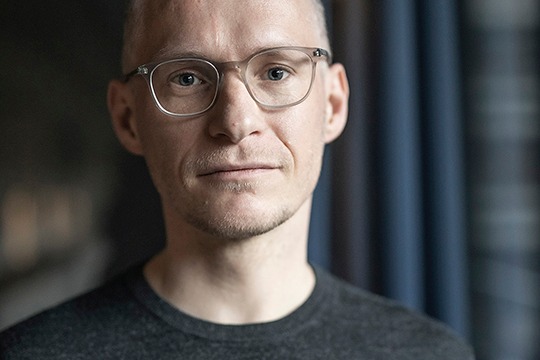You think Shell and other fossil fuel companies should be forbidden to advertise their products in the public sphere. Why?
“The situation is urgent: by 2030 we need to reduce our greenhouse gas emissions by 45 percent to have a chance at keeping global warming close to 1,5 degrees. We’re obviously not on track, the consumption of fossil fuels has only increased in recent years. It means we have to drastically change our ways of energy consumption.
“When fossil fuel companies continue to promote their harmful products, they undermine this change. Therefore fossil fuel advertising should be prohibited.”
2013 – now
Assistant professor of Law at VU Amsterdam.
His research interest is in European Economic Law and Climate Law.
Kaupa obtained his master’s degree at Harvard and his PhD in Vienna.
You draw a parallel with the tobacco industry.
“For decades, the tobacco industry has misled the public about the health risk of smoking. They even paid scientists to spread doubt about the scientific consensus and lobbied fiercely against regulation. It has been shown that the fossil industry is using the same PR playbook as the tobacco industry to deceive the public and avoid regulation. Advertising is an important element of that strategy.”
Sigaret packages have health warnings. Do you foresee a future with obligatory warnings on gas stations promising nasty climate scenarios?
“It could be one aspect. But I think we need to address the issue in a broader sense: all sorts of lobbying and advertisement by fossil fuel companies need to be banned. Now we’re in the situation that most people know we all have to cut down our fossil fuel consumption, but in the public domain we see advertisements for fossil fuel, for SUV’s and flight companies. Advertising these products normalizes and even idealizes a lifestyle that we know is clearly harmful to all of us. Psychologists call such a situation cognitive dissonance, it makes people insecure and less apt to take proper action.”
Together with your students from the Climate Law Clinic you won two complaints against Shell at the ‘Reclamecodecommissie’, the Dutch advertising authority. How did you proceed?
“In the first case we complained against Shell’s advertising campaign ‘Drive CO2 neutral’. According to Shell, a small payment to forest projects could compensate for the climate harm caused by running on fossil fuels. Our students worked through the relevant climate science, and showed that this is not true. The Reclamecodecommissie agreed with our stance, and declared Shell’s campaign to be misleading for consumers.
‘We have to drastically change our ways of energy consumption’
In response Shell rephrased its claim by changing only a single word: neutralize became compensate, as in ‘Compensate your emissions’. However, Shell failed to provide the scientific evidence that carbon compensation actually works. As a result, we complained again, and won.
“We can continue to file complaints about the next greenwashing claim and so on, but I think it’s time for a political decision prohibiting such advertisements in general.
This year we filed a complaint against Ajax, the cleaning liquid. On a bottle of Ajax there is a claim that it is fully recyclable, which is not true. This case is still in process.”
Together with his colleague David Rossati, Clemens Kaupa coordinates the Climate Law Clinic, a course for master students at VU Amsterdam. The course aims to promote climate justice via legal action.
They are a multidisciplinary group with Law students, students of Environmental Sciences, Social Sciences and others.
“For students it is incredibly inspiring to see they can actually do something against big companies like Shell”, Kaupa says. The course runs from October until March. This year it has 11 participants.
What about the sugar industry promoting unhealthy food choices like Coca Cola. Should these companies be banned from advertising as well?
“In my own work I am addressing the fossil fuel industry only, but the issue is broader: advertisements frequently promote lifestyle choices that are harmful to our own health or the environment. I think we need to be much more conscious about the messages we allow into our public domain.”
Are you an environmentalist in your personal life?
“I try to make conscious choices: I am from Vienna and usually I take the train home, but not always. I do fly. Travelling by plane is often cheaper since airway companies are exempt from most taxes, whereas train companies are not. As an individual you can only do so much. These are political choices we need to address collectively.”
